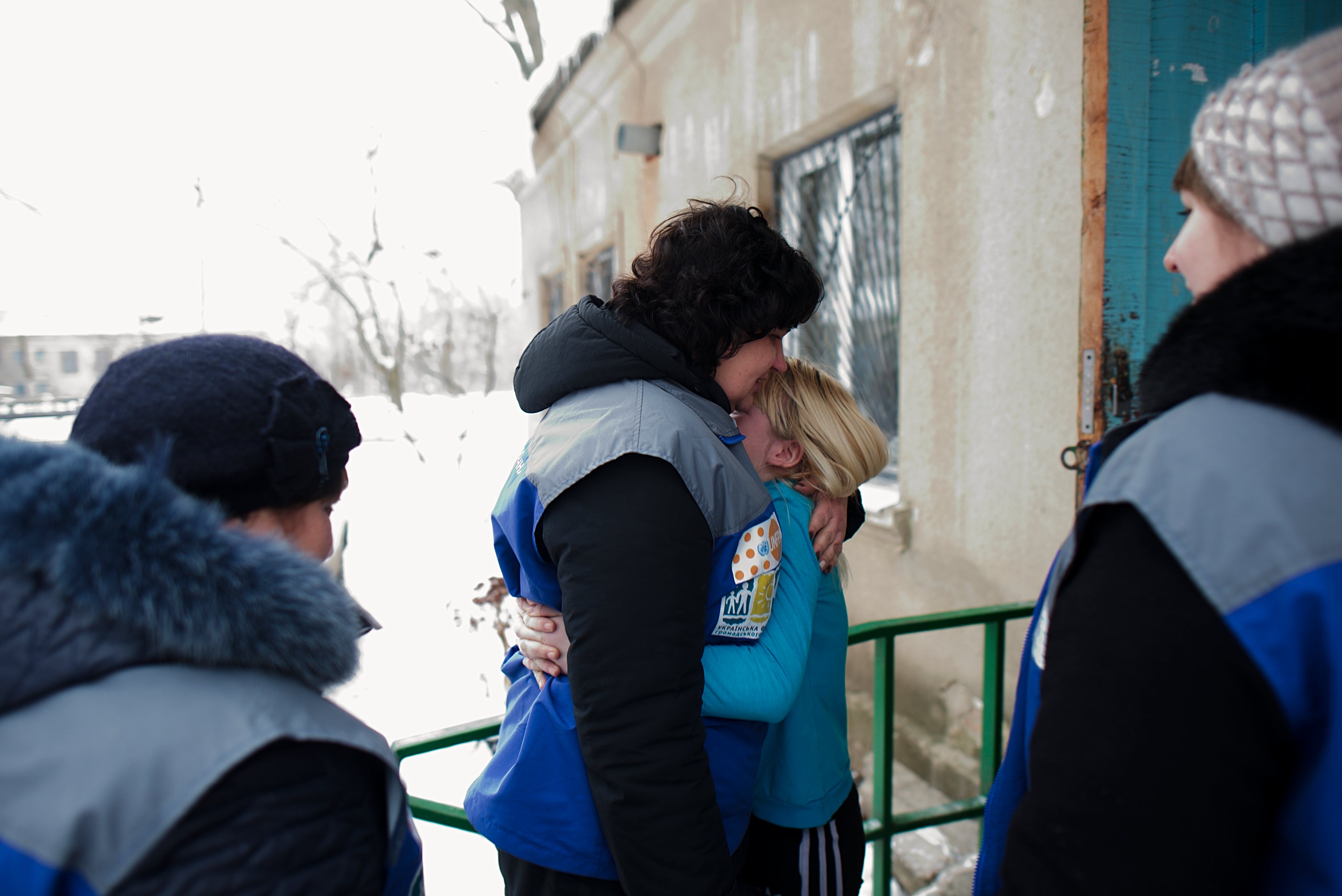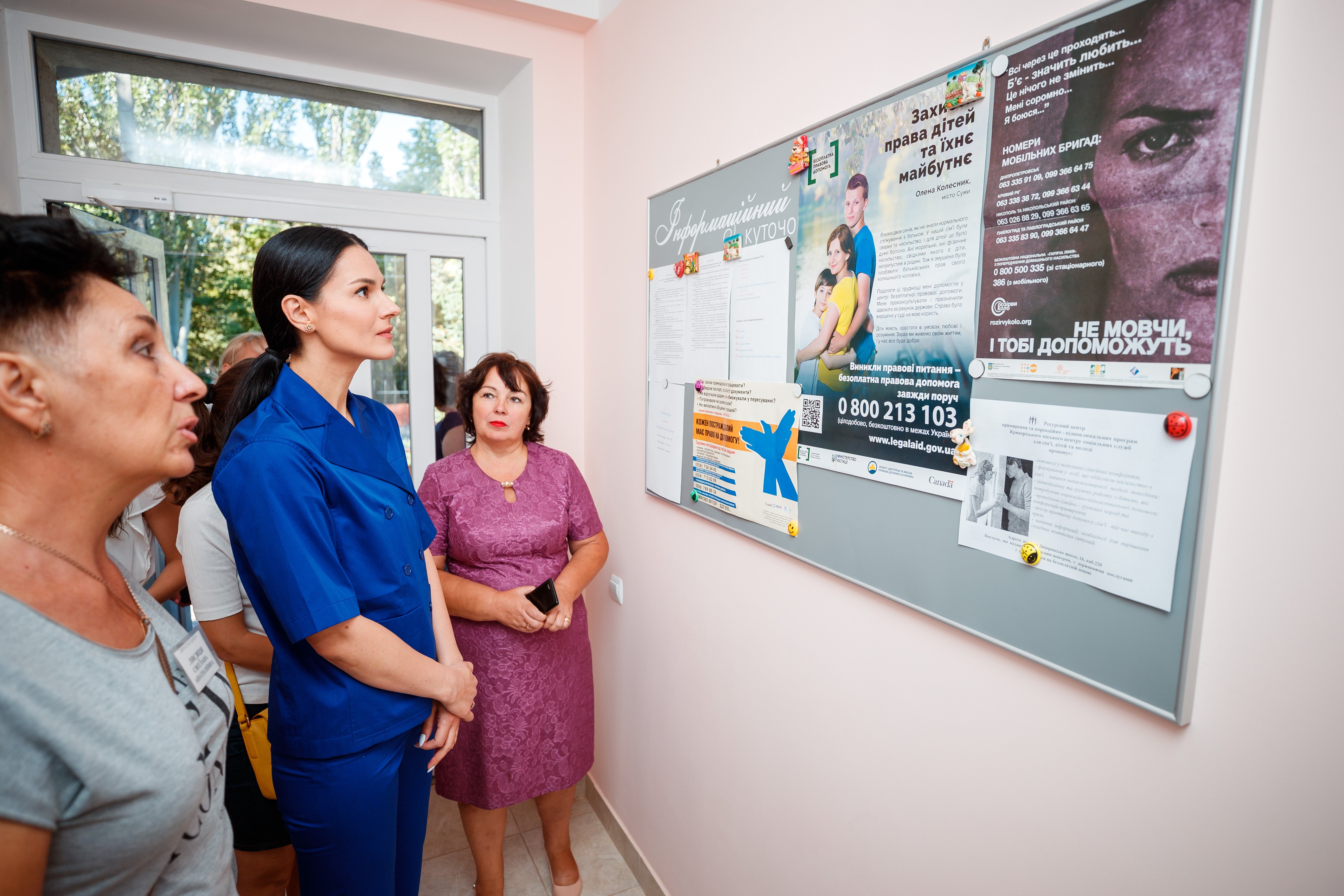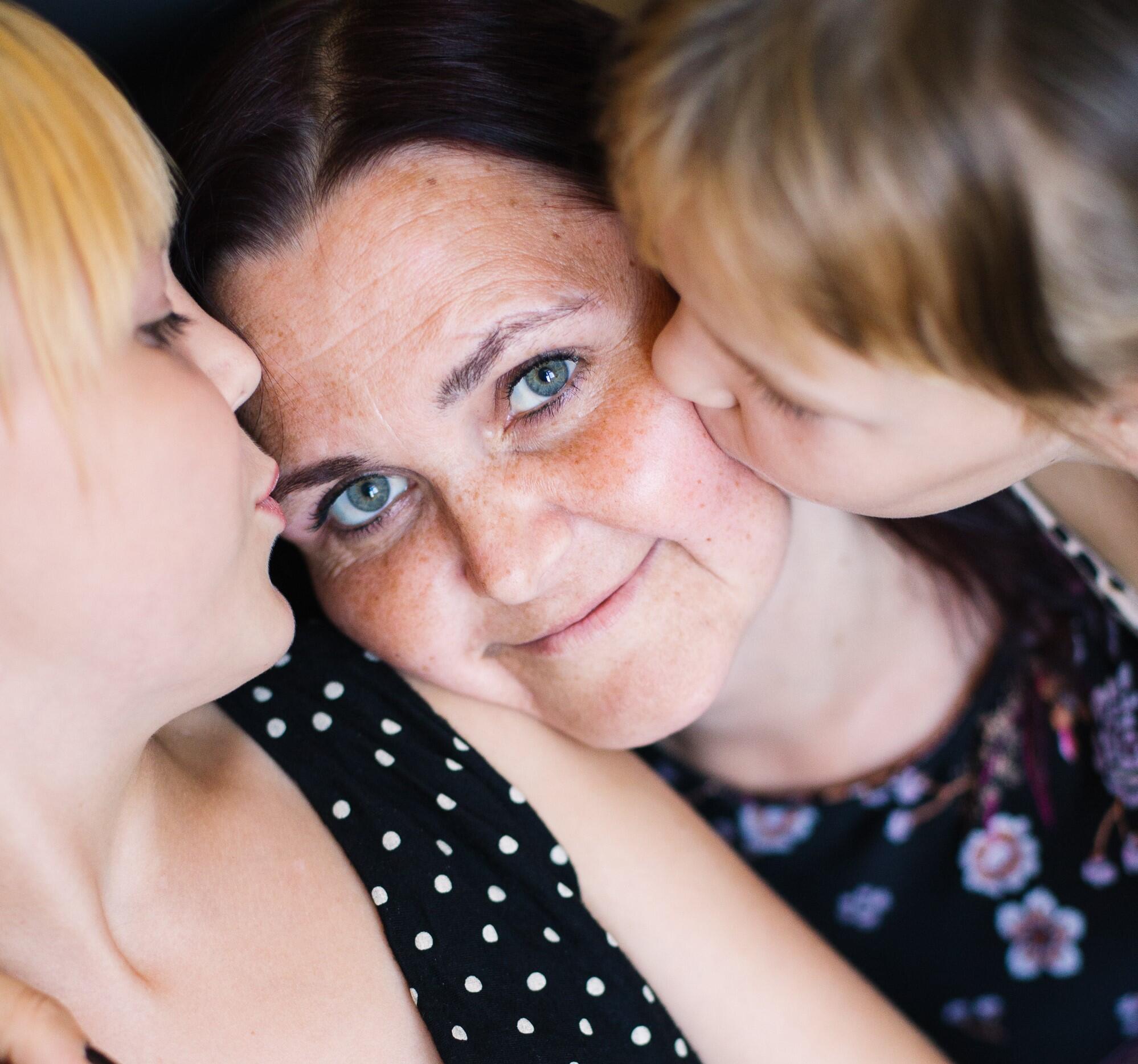Aggression and victimization is a daily, yet tacit, reality for many Ukrainian families. There is a common belief that suffering is an inevitable part of any marriage. But, in fact, it is not. If you happened to become a victim of domestic violence, you are protected by the Law and entitled to receive broad assistance.
Annually over 1,1 million Ukrainian women suffer from physical, sexual or emotional violence in their families. However, only every tenth one seeks help. What about the rest? There are a few reasons why women do not disclose violence against them. Firstly, there are traditional Ukrainian beliefs that beating means loving; that inner conflicts should not be shared with others; that it’s a widespread practice, thus, there is no need to make a deal out of it. Secondly, many women do not know where to get help. Thirdly, they do not trust those services who provide such help. After all, victims often do not identify themselves as victims. For example, when they are constantly accused, controlled or forced not to work.
A year ago the Law “On Prevention and Counteraction to Domestic Violence” was adopted in Ukraine. In the beginning of 2019 domestic violence will be criminalized. The Law foresees a number of services for domestic violence victims as well as guarantees the inevitability of punishment for offenders. All stakeholders in the field of prevention and counteraction to domestic violence coordinate their work to provide prompt assistance to those who need it.
The United Nations Population Fund (UNFPA) started working in this sphere at the beginning of military conflict in Donbas area. In cooperation with the Ministry of Social Policy of Ukraine and financial assistance of the governments of the United Kingdom, Canada and Estonia, UNFPA launched a program “Comprehensive Approach to Solving the Problem of Violence against Women and Girls in Ukraine”. One of the program’s aims is to make victims vocal, to make them aware that there are services to call to and receive effective assistance. The most important is to make such qualitative services available and accessible all around Ukraine. National Hotline
The National Hotline works 24/7. 7 out of 10 calls are received during evenings or at nights. Apparently, the number of violence cases increase in this timeframe. The first question, asked by consultants of the National Hotline, is whether there is no threat to one’s life and health at the given moment. If there is no danger right now, but a victim needs an advice on how to cope with domestic violence, then specialists consult her. In the phone mode, they help to create an action plan for her individual case and tell about services that could be received in a caller’s district center. The specialists of the National Hotline have a database of social, medical, psychological, legal service providers, which correspond to the victim’s needs. They can advise where to appeal to if, for example, the victim wants to get a divorce, but does not know to proceed and what her prospects are. The experts of the National Hotline provide consultancy and help victims to plan their further steps anonymously and free of charge.
Mobile teams of psychosocial help
One of the free options for domestic violence victims is to receive assistance from the mobile teams of psychosocial help. Currently, there are 49 such mobile teams functioning in 12 oblasts (regions) of Ukraine. During the last 3 years of operation, they have helped in 50 thousand cases of violence against women. Contacts of the mobile team could be found either in a center of social services or on the website rozirvykolo.org. If one wants to receive help from the mobile team, it is best if it’s nearby his or her locality. Otherwise, UNFPA experts recommend calling either the National Police or the National Hotline. Especially, if it’s a remote location, which is not easy to reach.

“POLINA”
Victims of domestic violence are often reluctant to call the National Police. A level of trust to policemen is quite low. Thus, they would rather call the National Hotline or the mobile team. Yet, it is the National Police that provides urgent assistance in the case of domestic violence. Moreover, 6 pilot police groups were trained to counter domestic violence. They have become the first in the Police anti-domestic violence network (“POLINA”). 45 more groups, trained and equipped by UNFPA, will start operating from January 2019. From now on “POLINA” will function nationwide.
Shelters and crisis centers
Many victims of domestic violence do not seek help, because they understand, that there is a deadlock, no place to escape from violence at home. If they leave their offenders, there are no relatives or friends to stay at for some time. Let’s picture such situation: a drunk man throws out his wife from home. It’s cold outside, she is wearing slippers and has no coat. What should she do, if she has no place to go? The Police can’t help in this case, since it doesn’t have a place to take this woman to. Exactly for such situations 2 years ago UNFPA started establishing shelters, or so-called ‘crisis centers’, for domestic violence victims. There are 7 such centers in Ukraine at the moment – in Kharkiv, Kryvyi Rih, Berdyansk, Krasnopavlivka, Mariupol, Sloviansk, and Vinnytsia. Thanks to UNFPA’s close cooperation with the local authorities and the new legislation adopted, a part of these shelters have been institutionalized. From the beginning of the next year, such shelters will be opened also in Odessa, Rubizhne, and Kherson. There is a need to make them bigger because sometimes women have to be on a waiting list to get in. But they might not have time and capability to wait. That’s why, a day center, large enough for 100 people to host, will open soon in Kharkiv.
Getting a temporary shelter in the crisis center is possible only after calling the mobile team. Nobody can’t get there just from the street. The address remains confidential so that an offender couldn’t find out where his victim is and inflict harm on her. Nevertheless, specialists say that victims themselves often violate confidentiality policy by revealing offenders their new address. They have to understand though, that it is not only about their safety, but also about the safety of other women, their children and employees of the crisis center. According to the new Law, children who have witnessed domestic violence, are also considered its victims. Crisis centers can offer a number of services for them. If a mother arrives in the center with small children, then the center’s staff will ensure that they feel safe and sound and can continue to study. Every shelter cooperates with the local services and has its agreements with kindergartens and schools in the particular district. Therefore, children do not have to interrupt their learning process.
One could stay in the crisis center for up to three months. There are single cases when women remain there longer. Usually, it happens if they have made a final decision not to come back home. These are success stories of women who’ve decided for themselves that they won’t tolerate violence anymore, that it’s time to start a new life. They have all the services they need to fulfill this goal: a safe environment, a psychologist, a social worker and a lawyer to consult with. Also, the center’s staff can help with finding a job or professional courses to obtain a new qualification. For example, UNFPA in cooperation with L’Oreal has launched a 6-month intensive study program for future hairdressers. Participants of this program are women who have found themselves in difficult life circumstances or have become victims of domestic violence. At the end of this year, they will obtain a specialization of a hairdresser and assistance in finding a job place.

Cabinets of medical help
In the east of Ukraine, there are 10 cabinets where one could get medical help anonymously. UNFPA is currently launching a few more. Such cabinets are equipped with necessary medical kits and a chair for gynecology and obstetrics. When this service was created, UNFPA specialists paid special attention to doctors that would work in these cabinets. They have to understand how to provide help in the case of violence, for example, rape. Earlier medics could ask intolerant questions or say that it is a woman’s fault that she’d suffered from violence. New cabinets are meant to provide help, oriented towards victims. Meaning: with minimum words, yet with maximum empathy and attention.
Contacts of service providers:
National Hotline for the prevention of domestic violence, human trafficking and gender discrimination: 116 123 (free on mobile phones) or 0 800 500 335 (free on landlines). 24/7, anonymously and confidentially.
Contacts of mobile teams of psychosocial support:
Find on rozirvykolo.org or ask at the National Hotline.
How to get to the shelter:
By calling mobile teams or police.


